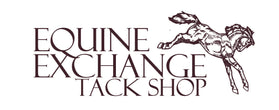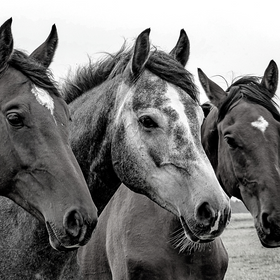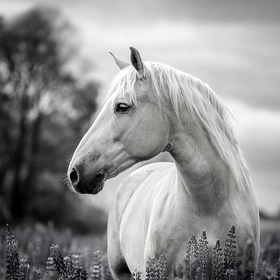
Poisonous Plants for Horses on the East Coast
The lush grasses and mild climate of the East Coast offer plenty of grazing options for horses. However, pastures can hide dangerous, poisonous plants that may harm your horse. Knowing which toxic plants are most common in this region is key to keeping your horse safe!
Why Are Some Plants Poisonous to Horses?
Some plants have poisonous substances that can harm a horse's body when ingested. This can lead to symptoms ranging from mild discomfort to severe illness and death. Horses are natural grazers, so they often know which plants to avoid. However, when food is scarce, or if a horse is curious or bored, they might nibble on these harmful plants. Recognizing the signs can help you prevent dangerous situations.
The Top Poisonous Plants on the East Coast
Red Maple
One of the most well-known toxic plants for horses on the East Coast is the red maple tree. Wilted or fallen red maple leaves are especially dangerous because they contain toxins that damage red blood cells, leading to severe anemia. Even a small amount can cause symptoms in horses, such as tiredness, dark urine, a fast heart rate, and trouble breathing. This is a life-threatening condition that requires immediate veterinary help.
Black Walnut
Black walnut trees are a concern because their shavings are sometimes used in horse bedding. When horses are exposed to these shavings, they can develop laminitis, a painful swelling in the hooves. Symptoms show up quickly and include hot hooves, stiffness, and a reluctance to move.
Poison Hemlock
Poison hemlock is a highly toxic plant found in pastures, roadsides, and disturbed soils throughout the East Coast. Its appearance can be deceiving because it looks similar to other harmless plants. All parts of the plant are poisonous to horses. It causes symptoms like muscle tremors, weakness, and trouble breathing. If left untreated, it can lead to respiratory failure.
Yew
The yew shrub is often used in landscaping, and it poses a significant danger to horses. All parts of the yew, particularly the seeds, contain toxins that can cause sudden death in horses. A small handful of yew clippings can be fatal within a few hours. Symptoms of poisoning include trembling, difficulty breathing, collapse, and sudden death.
Buttercup
Although buttercups are common in pastures, they contain a toxin that can cause mild to moderate symptoms in horses. These symptoms include mouth irritation, drooling, and diarrhea. Horses usually avoid buttercups because they taste bitter. However, they can still be a risk in overgrazed or poorly maintained pastures.
Signs of Poisoning in Horses
Detecting a plant poisoning early is key for your horse to make a full recovery. Symptoms of plant poisoning vary depending on the type of plant and the amount ingested, but common signs include:
- Loss of appetite
- Lethargy or weakness
- Diarrhea or colic
- Tremors or seizures
- Difficulty breathing
- Uncoordinated movements
If you suspect your horse has ingested a poisonous plant, contact your veterinarian immediately. Give them as much information as possible about the plant and the symptoms.
Prevent Poisonous Plant Ingestion
To lower the risk of plant poisoning, learn about the poisonous plants in your area. Regularly check your pastures, trails, and paddocks for these plants. Be sure that your pastures provide ample forage for your horses, reducing the chance they will turn to poisonous plants out of hunger.
Finally, never leave yard waste or clippings where horses can access them, as some poisonous plants are commonly found in landscaping.
On the East Coast, the variety of poisonous plants, from red maple to yew, presents a real threat to horses. It’s important to be vigilant about the plants your horse is exposed to. Learn to identify these plants and take steps to avoid them to keep your horse safe and healthy.





